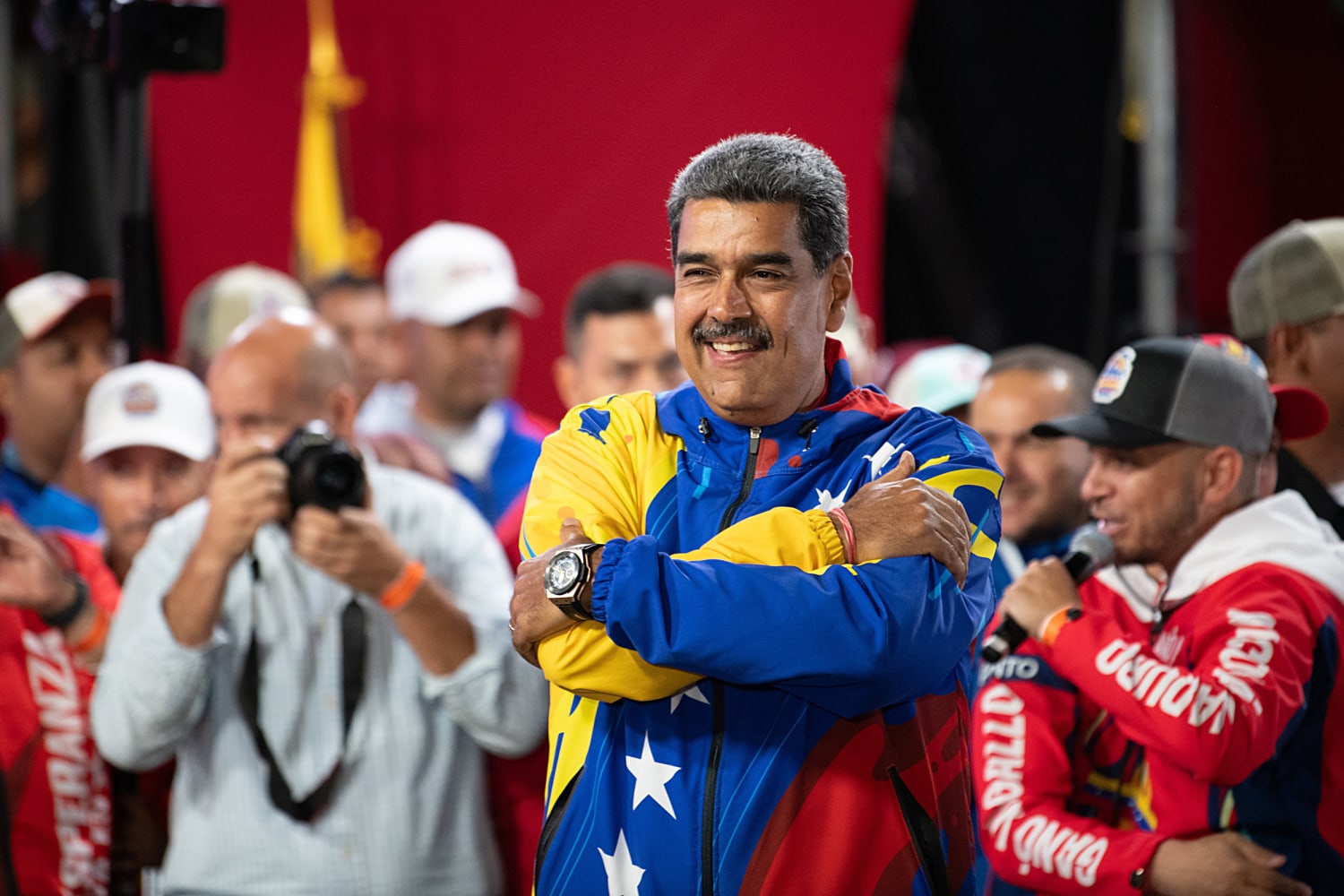Concerns over the legitimacy of Venezuela’s presidential election persist as its entrenched president and the country’s opposition both claimed victory Monday — prompting foreign nations, including the United States, to hold off on recognizing the results.
Election officials declared President Nicolás Maduro the winner over opposition candidate Edmundo González early Monday during a press conference on Venezuelan state television.
With 80% of the ballots counted and a 59% voter turnout, Maduro won a third term with a little more than half of the votes (51%), while González obtained 44% of the votes, according to a preliminary report from Elvis Amoroso, head of the National Electoral Council, which is controlled by the Maduro government.
These results were announced as election officials delayed the release of detailed vote tallies from the 30,000 voting booths nationwide, a process crucial to the accurate verification.
Reports of widespread voter intimidation, irregularities at voting centers and election fraud allegations also prevailed on the day of the election, according to The Associated Press and Reuters.
Secretary of State Antony Blinken said Washington had “serious concerns” that the publicized election results did not reflect the votes of the people.
Citing independent exit polls, opposition leader María Corina Machado claimed González won 70% of the votes.
González had replaced Machado as the opposition’s presidential candidate after the Maduro regime in January banned her from holding office based on fraud and corruption allegations she has denied. She has been the driving force behind the opposition movement.
“Venezuelans and the entire world know what happened,” González said. “We won’t rest until the will of the people of Venezuela is respected.”
Maduro’s government has relied on fabricated election results in the past. The U.S. government considers his 2018 re-election to have been fraudulent and has said that the South American nation has not had a democratic election since 2015.
Argentine President Javier Milei called the official election result a fraud, and leaders in Costa Rica and Peru rejected it.
Chilean President Gabriel Boric said the results were “difficult to believe,” adding he would not accept any result that was not verifiable.
Spanish Foreign Minister José Manuel Albares echoed Boric’s sentiment, saying details from all polling stations should be revealed to guarantee fully verifiable results.
Russia, Cuba, Honduras and Bolivia have accepted Maduro’s victory.
The leaders of Brazil and Colombia, which have recently worked to restore ties with Venezuela, praised the overall “peaceful nature of yesterday’s election” and called for a “total vote count, its verification and independent audit to be carried out as soon as possible.”
Sunday’s election was among Venezuela’s least violent in recent memory.
Maduro had threatened a “bloodbath” if he was not re-elected. Under his leadership, he provided continuity to the single-party rule of the Chavista regime, the socialist-inspired political movement turned authoritarian that began nearly three decades ago under Maduro’s mentor, Hugo Chávez.
Venezuela is home to the world’s largest oil reserves. Financial mismanagement of this sector during Maduro’s term, compounded with strict sanctions imposed by the U.S. in 2019, triggered a domino effect that resulted in the collapse of Venezuela’s economy. It also triggered an ongoing humanitarian crisis that has left people without access to food, health care and other basic necessities.
The crisis has pushed more than 80% of its people into poverty and an estimated 8 million Venezuelans to migrate to other Latin American nations and the U.S., creating the largest displacement crisis in the world.
Against this background, support for Maduro and the Chavista regime began to dwindle. The opposition movement then started to gain momentum as its efforts began to cut through ingrained political apathy stemming from years of government repression from a government known for arresting dissidents and suppressing protests.
It remains unclear what the opposition’s next steps will be, but González said it is not calling for supporters to take to the streets or commit any acts of violence.
“We are a civic, peaceful movement, and that’s how we will keep working until we make the truth prevail,” Machado said, adding that the opposition has great support from the international community.
#Doubts #cloud #Venezuelas #election #results #Maduro #González #declare #victory,
#Doubts #cloud #Venezuelas #election #results #Maduro #González #declare #victory
